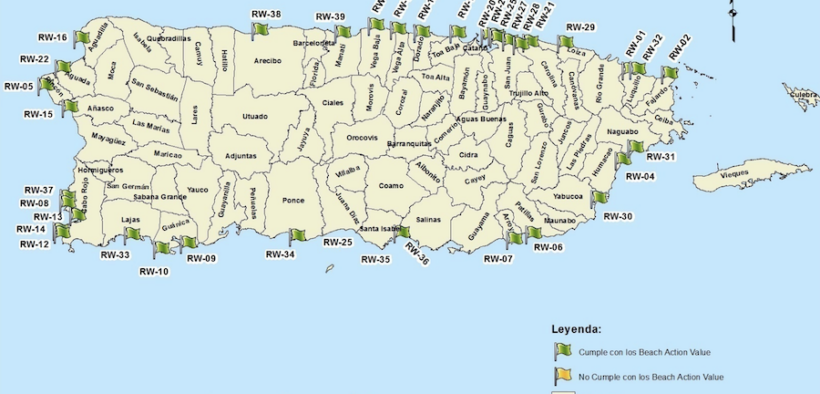EPA grants $650K to boost beach safety in Puerto Rico, USVI

With the objective of protecting public health and ensuring water safety, the U.S. Environmental Protection Agency (EPA) has announced the allocation of more than $650,000 to Puerto Rico and the U.S. Virgin Islands.
The funds assist states, tribal and territorial applicants, along with their local government partners, in monitoring water quality at beaches. When bacteria levels rise above safe limits for swimming, the relevant agencies notify the public and post beach warnings or closures.
The funds, which will be divided between Puerto Rico ($344,000) and the USVI ($309,000), are contingent upon the territories meeting specific eligibility requirements.
The initiative is part of a larger $10.6 million grant, aimed at assisting coastal and Great Lakes communities in protecting beachgoers.
“Many people spend time in the summer splashing, swimming and playing at a favorite beach, which is why EPA is providing more than $10 million to help states and local partners monitor water quality,” said the EPA’s assistant administrator for water, Radhika Fox. “These grants help states, tribes, and territories fund programs to ensure that our coastal waters are safe for swimming and recreation.”
The allocation is made under the Beaches Environmental Assessment and Coastal Health (Beach) Act. The EPA said that since its inception in 2001, the law has facilitated the agency in awarding nearly $216 million in grants.
“Three factors influence the allocations for awarding grant totals up to $10M: (1) the length of the beach season, (2) the number of miles of shoreline, and (3) the populations of coastal counties,” the EPA’s website explains. “If the grants total more than $10M, then these two factors are considered for the amount above $10M: (1) number of miles of beaches and (2) beach use.”
The agency said that when a state, tribe or territory decides to open or close a beach, they report that information with relevant water quality data to EPA over varying timeframes, which can range from days to months after the information is collected. The latest information sent to the EPA can be found here.
Puerto Rico’s Environmental Quality Board is currently submitting information on water quality.




